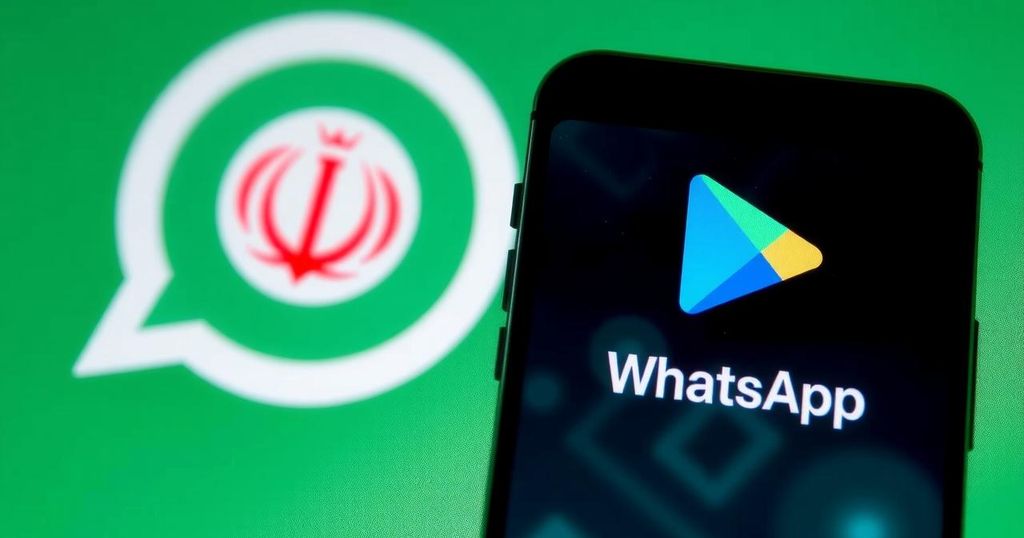Technology
ASIA, FACEBOOK, GOVERNMENT CRACKDOWN, INFORMATION AND COMMUNICATIONS, IRAN, ISLAMIC REPUBLIC, MAS, META, MIDDLE EAST, NORTH AMERICA, NUCLEAR POLICY, PE, PEZESHKIAN, REUTERS, SANCTIONS, SATTAR HASHEMI, SHAHRAM DABIRI, TEHRAN, UNITED STATES, WEST, WOMEN'S RIGHTS, YOUTUBE
Isaac Bennett
0 Comments
Iran Lifts WhatsApp and Google Play Ban Amid Hijab Law Suspension
Iran has lifted the bans on WhatsApp and Google Play, indicating a possible relaxation of internet restrictions. This decision follows the postponement of a stricter hijab law, reflecting internal and external pressures on Iranian leadership as they engage with ongoing negotiations over sanctions and social freedoms.
Iran has lifted restrictions on the popular messaging application WhatsApp and the Google Play Store, marking a significant shift in the country’s stringent internet policies. The lifting of these bans follows a meeting led by President Masoud Pezeshkian, wherein a decision was made to allow access to certain foreign platforms, according to the Islamic Republic News Agency (IRNA). This development may indicate a gradual move towards easing internet limitations that have characterized Iran’s digital landscape.
Despite Iran’s strict internet controls, many citizens have utilized virtual private networks (VPNs) to access blocked sites such as Facebook, X (formerly Twitter), and YouTube. The lifting of restrictions on WhatsApp and Google Play is considered a positive step towards reducing censorship, particularly in the context of the significant role social media has played in facilitating anti-government protests in the country.
Concurrently, on December 18, Iran decided to suspend the implementation of a new hijab law that proposed stricter adherence to wearing the hijab, which was a significant point of public contention. This law, previously approved by the Iranian parliament, would have imposed severe penalties on women and businesses violating hijab regulations. The decision to pause the law was influenced by discussions among the state leadership as they navigate international negotiations regarding sanctions linked to Iran’s nuclear program.
This recent shift could potentially impact the political climate in Iran as President Pezeshkian seeks to engage with the West, while balancing internal pressures. The delay in enforcing the hijab law allows for a broader dialogue on women’s rights and freedoms within Iran amidst ongoing international scrutiny.
Iran has long been known for its rigorous internet censorship, with the government enforcing strict control over online communications and social media platforms. The usage of VPNs among citizens has become common as a means to circumvent these limitations. Recently, the U.S. government had urged major tech companies to assist in combating online censorship in heavily regulated countries, including Iran. The recent decisions by Iranian authorities may reflect a willingness to engage in dialogue about internet freedoms coinciding with discussions on international sanctions and domestic laws regarding women’s dress codes.
The lifting of the bans on WhatsApp and Google Play signifies a pivotal moment for internet accessibility in Iran, suggesting potential shifts in state policy towards greater openness. Additionally, the suspension of the new hijab law highlights ongoing tensions between domestic governance and international relations, indicating a nuanced approach by the Iranian leadership as it navigates calls for reform. These developments may represent a broader trend toward increased dialogue and reform within the Iranian political landscape.
Original Source: www.hindustantimes.com




Post Comment